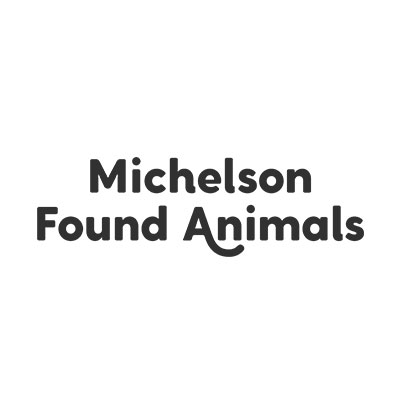ORLANDO, FL (May 1, 2019) — The North American Veterinary Community (NAVC) and the Human Animal Bond Research Institute (HABRI), who jointly founded the Human-Animal Bond Certification program last year, announced today that Zoetis, a leading animal health company, has become the first Human-Animal Bond Certified Company.
“With its long-term commitment to funding human-animal bond research, education, professional development and programming, Zoetis is uniquely deserving of this meaningful recognition,” said Steven Feldman, HABRI Executive Director. “Being a Human-Animal Bond Certified Company sends a clear message that Zoetis is a leader in strengthening the human-animal bond for the veterinary community and the public.”
“For years, Zoetis has been a leading advocate of the bond between humans and animals, and we are honored to have earned this important certification,” said J. Michael McFarland, DVM, DABVP, Executive Director, Zoetis Petcare Marketing and Chair of the HABRI Board of Trustees. “Veterinarians play a key role in strengthening the relationship between animals and people, and Zoetis is committed to helping them, their clients, and the animals they care for experience the benefits of the human-animal bond.”
As part of the certification process, more than two dozen Zoetis employees successfully completed the certification program, receiving training on the science behind the human-animal bond and developing a deep understanding of how this science supports the practice of veterinary medicine. Zoetis is committed to ongoing training for additional employees.
The leadership role of Zoetis is evidenced by its commitment to education, and the company was an early supporter of the Human-Animal Bond Certification program. After only one year, more than 500 professionals have signed up for this certification, which offers 22 hours of RACE-approved continuing education credit. Zoetis has also developed educational resources surrounding the bond for its own employees, for the veterinary community at large and for pet owners.
Zoetis’s support of the bond includes its K-9 Courage Program, highlighting a commitment to corporate social responsibility, and its popular Pet Effect program, bringing greater awareness of the human-animal bond to the general public. With Zoetis’s support, HABRI and the NAVC are able to provide education beyond just veterinary practices, demonstrating the continued support of the benefits of the bond to the animal health profession as a whole.
“When we started this certification program, our intention was to spread the benefits of the bond to as many animal health professionals as possible. This included extending the program to those corporations that are committed to supporting the human animal bond in addition to veterinary clinics,” said NAVC CEO Thomas M. Bohn, MBA, CAE. “We are proud to announce Zoetis as the first company to earn the Human-Animal Bond Certified Company designation and we thank them for their continued interest and commitment to this education initiative.”
Important for their certification, Zoetis has demonstrated an ongoing commitment to the human-animal bond by making sizeable investments in independent research on the benefits of companion animals to children with autism, veterans with PTSD, children with cancer and more.
“From pediatric health and development to healthy aging and improved mental wellness, the human-animal bond is essential to our society,” said Dr. McFarland. “Healthy pets enhance the health of their owners, their families and the communities they call home.”
To learn more about the Human-Animal Bond Certification and to find out how you or your clinic can become certified, please visit NAVC.com/HAB.
About NAVC
Founded in 1982 and headquartered in Gainesville, Florida, with offices in Orlando, Florida, the North American Veterinary Community (NAVC) is a non-profit organization providing world-class professional development to the global veterinary healthcare community. Its largest event, VMX, hosts 17,000 veterinary professionals each year. Other offerings include VetFolio, an online CE platform in conjunction with LifeLearn; the NAVC Institute; the Veterinary Innovation Council; an Industry Services Division; and its Media Division, consisting of: Today’s Veterinary Business, Today’s Veterinary Nurse, Today’s Veterinary Practice, Veterinary Advantage and an online news and lifestyle channel, Spark! In 2018, the NAVC launched its Certifications division including the Human-Animal Bond Certification and added the Veterinary Business Leader Certification and the Pet Nutrition Coach Certification in 2019. Visit NAVC.com for more details.
About HABRI
HABRI is a not-for-profit organization that maintains the world’s largest online library of human-animal bond research and information; funds innovative research projects to scientifically document the health benefits of companion animals; and informs the public about human-animal bond research and the beneficial role of companion animals in society. For more information, please visit www.habri.org.
About Zoetis
Zoetis is the leading animal health company, dedicated to supporting its customers and their businesses. Building on more than 65 years of experience in animal health, Zoetis discovers, develops, manufactures and commercializes medicines, vaccines and diagnostic products, which are complemented by biodevices, genetic tests and a range of services. Zoetis serves veterinarians, livestock producers and people who raise and care for farm and companion animals with sales of its products in more than 100 countries. In 2018, the company generated annual revenue of $5.8 billion with approximately 10,000 employees. For more information, visit www.zoetis.com.
###
Contact
Jamie Baxter
jamie@theimpetusagency.com
775.322.4022
###





